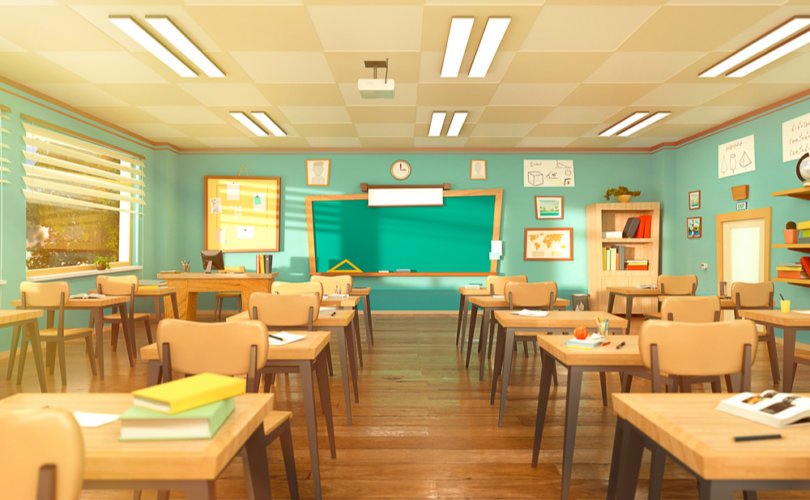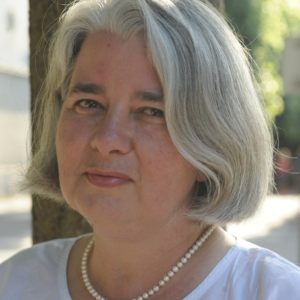(LifeSiteNews) — A powerful French secularist organization in the field of education has launched a campaign against independent schools that it accuses of failing to teach properly the “common core” required under education laws, and of disregard for the “values of the Republic.” The CNAL (Comité national d’action laïque, “National Committee for Secular Action”) based its accusations on a number of reports of public inspections in these schools which it obtained through the Commission for access to administrative documents (CADA).
The CNAL issued “recommendations” aiming to make opening these schools more difficult, increase government control, and facilitate their closing down by regional authorities when their curriculum is deemed unsatisfactory — to date, these schools can only be shut down if they do not comply with safety requirements.
Independent schools in France represent only a fraction of the total. Some 80 percent of all pupils in primary and secondary schools go to state or “public” schools that are fully paid for by public funds. About one fifth are enrolled in “private schools under contract with the state” where teachers are paid with public funds while buildings and upkeep are financed privately: In these schools, the official and very detailed school curriculum must be followed. Most of these schools are Catholic. Some even manage to be more than nominally Catholic …
Independent schools receive no public funds and are free to establish their own curriculum and pedagogic methods, although by law they must teach a “common core” of “knowledge, abilities, and culture.” Their number is on the rise in the face of the dumbing down observed parents in many state and contract schools, and because of the recent tightening of rules for homeschooling that is set to be reserved for marginal cases and subject to prior authorization as of September 2023. About 1,800 independent schools in France welcome some 85,000 children (out of a total of 12.5 million students); about half are Catholic, often traditional Catholic.
The CNAL is an umbrella organization where the main teachers’ and parents’ unions of the public education system come together to defend and protect the “secularism” of the French Republic, particularly in schools. It focuses on acting against the allocation of public funds to the private school system and “proselytism” in schools. While it has no power to intervene directly in these matters, its closeness to powerful syndicates and the left-wing media gives its campaigns weight, especially in a context where the authorities openly count on the National Education sector to fashion “good” Republican citizens.
“Republican,” in secularist France, refers to refusing religious influence in the public sphere and more generally to adopting the revolutionary “values” of liberty, equality, fraternity and non-discrimination unhampered by natural law and the primacy of truth.
So when the CNAL sets forth to accuse “religious” schools, but really — to be more precise — the traditional Catholic independent schools that are in the CNAL’s crosshairs, there are reasons for grave concern.
Why the Catholic schools? Because most of the 164 reports the CNAL was able to obtain, representing roughly 10 percent of the total number of independent schools in France, were about them. At first, a number of regional Academies that are tasked with organizing and supervising schools and universities, both public and private, refused to release reports. The CNAL then used the special “CADA” procedure to force their release, it being understood that not all schools are “inspected” frequently, if at all.
For unknown reasons, reports about Jewish or Islamic independent schools – of which there is an increasing number — were not forthcoming, a situation brushed aside by the authorities who said that “inspections” of these schools were “ongoing”: An unlikely excuse because every inspection gives rise to a report that can include concerns to be fixed and “reinspected” later.
Whatever the reason, though, this has made focusing on Catholic schools and presenting them as “lost territories” for the National Education system even easier for the CNAL. Its secretary general, Rémy-Charles Sirvent, told the press that “freedom of education should not serve as a pretext for bad quality education.”
This is a joke: Many parents take their kids out of the official school system because of the number of pupils who reach high school or even the baccalaureate exam that opens the door to the state university system without being able to read and write French properly, to say nothing of an abysmal lack of culture and historical knowledge. Independent schools will usually teach reading and writing with traditional “alphabetic” methods instead of the “see and say” methods that are used in varying degrees by the overwhelming majority of state-funded schools.
The CNAL had access to reports regarding 14 schools affiliated with the Society of St. Pius X (out of 59) and 29 so-called “ultra-Catholic” schools, as well as 52 Montessori schools.
According to the CNAL, Catholic independent schools do not sufficiently teach “critical thinking” and “scientific thinking,” and they instill “confusion” between “history and religion.”
One example quoted an SSPX school in northern Brittany where children were taught that the writing of the revolutionary “Encyclopédie” in 18th century France “was basically the fruit of a conspiracy whose hidden objective was the annihilation of religion and the overthrow of authority.” But the Encyclopedia’s authors and promoters such as Diderot and Voltaire made no mystery of the fact that they hated Christ and Catholicism.
The CNAL also complained about the way some historical figures such as General Charles De Gaulle were presented. They didn’t like how the wars of the Vendée were glorified and had issues with the presentation of France’s colonial past.
Regarding SSPX schools, the CNAL’s campaign led to articles in the mainstream media (from La Croix, the unofficial daily of the French bishops to Charlie Hebdo, which illustrated its story with obscene and blasphemous drawings) deploring their isolation and their maintaining of students in a “reactionary world.”
The CNAL also deplored the lack of “co-education” of boys and girls, “lower vaccine coverage,” the “pedagogy of obedience,” a lack of “group work” and the use of “obsolete school books.” These included readers from 1965, which actually teach reading in an efficient and step-by-step manner while enriching students’ vocabulary. Some schools were accused of “revisionism” because history courses did not include “the Holocaust,” or of “racism” because some of the maps used suggested a regional distribution of “Whites” and “Blacks.”
The CNAL went on to say that sports courses were often insufficient (it is true independent schools rarely have the wherewithal to fund expensive sports equipment) and that “discrimination” between girls and boys was rife. The Catholic schools were also accused of not teaching “education for citizenship,” a hybrid discipline that aims to make high school students familiar with public institutions and political rights while promoting political correctness and environmental awareness.
Another complaint was about the “absence of sex education” and “lack of access to the media.”
The report did not quote the remarkable success of most young people who got a traditional Catholic education in these schools at state exams at the end of high school. Nor did it mention their successes regarding admittance to some of France’s most prestigious “preparatory classes” and “grandes écoles”: These are elite institutes of higher education where students are admitted according to their ranking in competitive exams.
As things stand, most independent Catholic schools manage to thrive despite “academic inspections” because of the efficiency of their methods and the good results of their students, even though some inspections are frankly hostile. They also contrive to uphold freedom although the wording of existing laws already makes more severe control possible on paper via “common core” requirements.
The recent “anti-separatist” law approved in August 2021 already extended the powers of local “préfets” (representatives of the administration in France’s “départements” or local administrative units) to decide to close independent schools without the intervention of a judge. The law was promoted in order to combat Islamic activism, but could be used to clamp down on Catholic schools. It has already imposed heavy restrictions on home-schooling.
If the CNAL gets its way, opening new independent schools will be subject to “permission” from the state authorities, instead of the present declarative process in which a new school can go ahead as long as minimum requirements regarding the competency of its director is proved and security regulations are observed. The procedure to obtain permission to open would include giving precise information about the new schools’ “pedagogic project,” which would allow for ideological control.
Last but not least, the CNAL is going for one of many independent schools’ major sources of income, together with school fees paid by parents whose taxed also finance state education: tax-deductible gifts. It has seized the “Cour des Comptes,” France’s high court assessing public spending in order to question independent schools’ funding by non-profit foundations.



